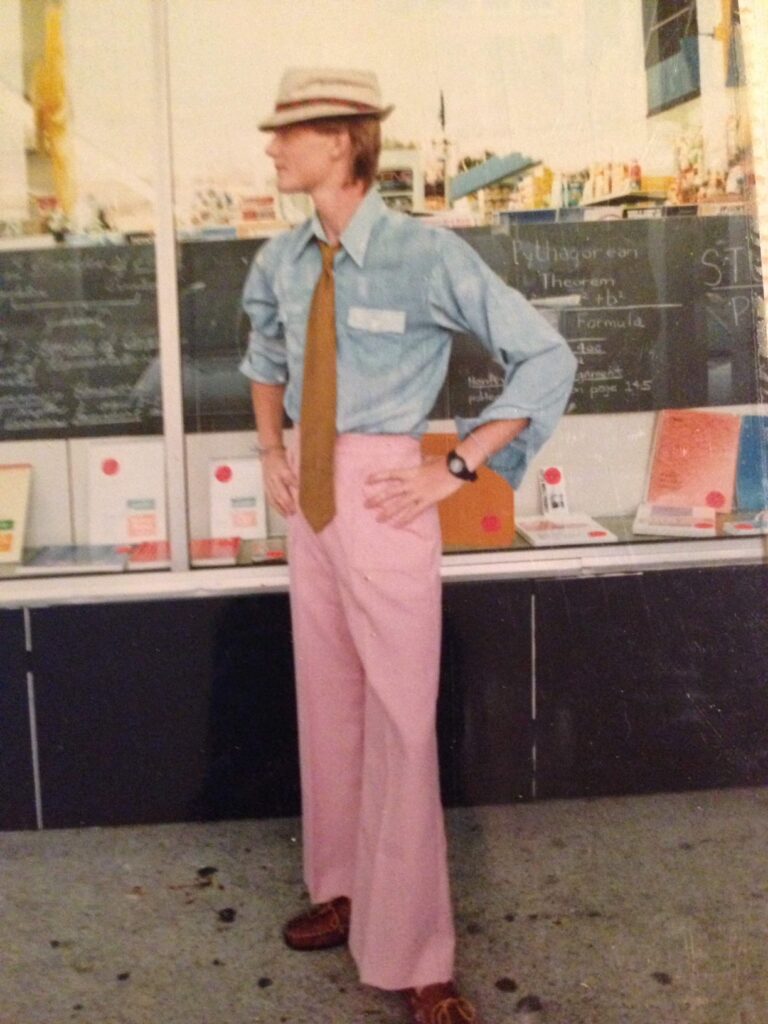Today’s spotlight is on Orange Effect Foundation Board Member, Craig Coffey.

What do you do for your day job?
I work at Eaton, a fortune 100 diversified manufacturing company. A Eaton, my job involves developing content strategy and messaging for Brightlayer, which is Eaton shorthand for all of the ways that we can enable digital products and data to make life easier and better for our customers.
What do you do for fun?
When I’m not working, I spend a lot of time cheering on my two girls (11 and 13) at their various sporting events—basketball and volleyball, mainly. I say cheering, not coaching, as their athletic development is all my wife’s work. They’ve blown past me, skills-wise. When there’s time, I also enjoy working in my garage-turned-workshop making furniture from steel and wood. I’ve also spent a lot of time (like a whole lot) over the last 15 years remodeling and renovating our century home in Lakewood. It’s
a never-ending project, and unlike most people I talk to, I enjoy it.
Tell us about one of your role models or unsung heroes from childhood.
Not surprisingly, one of my role models growing up was a guy named Norm Abrams. For those who don’t know, Norm was the original master carpenter and general contractor for a show called This Old House. He also had his own show called New Yankee Workshop. I’ve been watching Norm do and teach for as long as I can remember. Even in rewatching old episodes, I almost always pick up something I missed the first time around. When my oldest daughter was very young, my favorite Sunday morning activity was getting up before my wife, getting the baby and curling up to the latest episode of TOH and NYW. Even though they’ve grown out of that, it’s still my favorite Sunday morning activity.
What is your favorite animal and why?
Not that I have any real experience with them, I think my favorite animal might be the horse. Their ability to be gentle and explosive, strong and sensitive, to work hard when needed but to also enjoy play seems like something we as people could use more of. They seem to be at their best when they are in the service to others, which is also a lesson we could all learn.
When you were young, what did you want to be when you grew up?
What did I want to be when I grew up? My immediate reaction is to think about all the various professions I thought I’d like to do—astronaut (of the bionic persuasion), sailor/pirate, advertising executive (think 30 Something, not Mad Men—I was an 80’s kid) or whatever the latest action/adventure serial was featuring. But thinking more broadly, I understood early on that the thing I really wanted to be when I grew up
was a father.
Even though I lost my own father at a young age, I was very lucky to have a lot a surrogate fathers and father figures help guide me through my life. These men formed the basis of what it meant to me to be a good dad and set the ideal I continue to strive to achieve. Things like being available and present. Knowing when to give advice and when to let children learn from their mistakes. Being handy and passing those skills on. Being flexible. Knowing that kids learn from what they see you do, not what you say. Not taking yourself too seriously. As a dad, I’m definitely a work in progress—I’m sure my wife and kids would agree—but you know what they say about work: If you love what you do…

